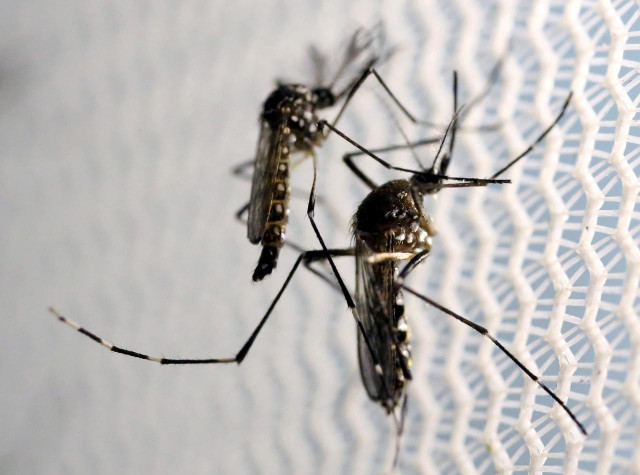Dengue larvae found in 1,710 houses
Detection of large-scale larvae throws harsh spotlight on anti-dengue drive

The presence of large-scale dengue mosquito larvae indoors and outdoors across the Rawalpindi district has raised eyebrows about the ongoing campaign.
The detection of dengue larvae in 1,710 houses during the last seven days in Rawalpindi district has laid bare the much-touted but poor performance of the health department and the district administration.
Sources said that the field staff did not visit 6,394 declared hotspots during the four-day anti-dengue campaign. Around 9,476 places have been declared the most dangerous hotspots for the dengue virus outbreak.
The sources said that during the drive 50 per cent of hotspots could not be visited which can lead to the breeding of the larvae and ultimately the outbreak of the deadly viral disease.
Although the number of dengue-positive patients across the district has reached 50 so far this year, the presence of dengue larvae on a large scale and the response against it has been disappointing which has made the situation further complicated. District Health Officer Dr Ahsan Ghani said that spray has been started to destroy the dengue larvae and public awareness campaign has also been accelerated. He said that until the community takes responsibility, the anti-dengue drive will not succeed. He said that citizens should drain out standing water from their houses and also remove the waste so that dengue larvae did not get a chance to breed.
Meanwhile, according to the dengue control report, 776 FIRs have been registered so far against citizens after detecting the larvae during the anti-dengue campaign from the same places despite warnings.
Similarly, an Rs2.5 million fine was imposed, 4,579 notices have been issued, 951 challans have been issued and 319 buildings have been sealed.
According to District Health Authority Chief Executive Dr Ansar Ishaq, the campaign against dengue has become a herculean task after the detection of large-scale dengue larvae.
He said that a request has been made to the Punjab Health Department to recruit 2,000 sentry patrols on daily wages so that dengue surveillance could be accelerated.
Meanwhile, the anti-dengue campaign has hit a snag in Cantonment areas as no chemical spray and other logistical support could be delivered for the eradication of the dengue larvae. Sources said that the Cantonment authorities have launched their own anti-dengue drive with limited resources.
The number of dengue patients in Cantonment areas has consistently been on the rise as compared to the past.
According to sources, dengue larvae breed on a large scale during the monsoon season, and as a result, the dengue mosquito could spread on a large scale.
Sources in the health department said that despite the anti-dengue campaign, continuous rains and non-implementation of dengue SOPs by citizens at homes and outdoor were causing the breeding of dengue larvae on a large scale. They said that there was a dire need to take precautions, otherwise, the dengue outbreak could not be ruled out in the third week of August owing to the large-scale mosquito breeding.
Earlier, warnings had been issued to officials concerned after 152 bogus anti-dengue activities were detected in the district by the monitoring team.
Published in The Express Tribune, August 12th, 2022.


















COMMENTS
Comments are moderated and generally will be posted if they are on-topic and not abusive.
For more information, please see our Comments FAQ